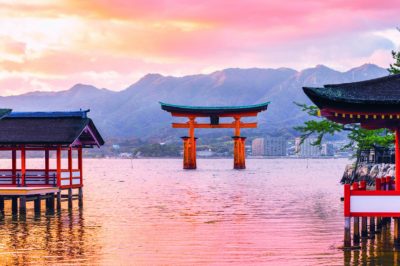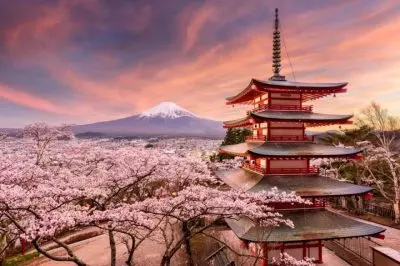 Gambling in Japan is a complex subject, as the Government has permitted some forms of gambling, while others are still limited or restricted. According to some experts, 2021 could be a good year for the country to finally move further with its effort to expand the local gambling sector by the addition of casinos.
Gambling in Japan is a complex subject, as the Government has permitted some forms of gambling, while others are still limited or restricted. According to some experts, 2021 could be a good year for the country to finally move further with its effort to expand the local gambling sector by the addition of casinos.
For years, it was unthinkable for Japanese people to have licensed retail casinos. However, the attitude of the country’s Government seems to be changing. In 2018, local lawmakers decided to officially legalize casino gambling in Japan, with the infrastructure for that already in place and many gambling operators having said they would be interested to set foot in the country’s gambling sector.
According to expectations, the first brick-and-mortar casinos in Japan could open by the end of this year in case the Government approves the licenses for so-called integrated casino resorts.
Japan’s Government Has Unveiled Draft Regulations for Casino Gambling
 The draft regulations for casino gambling expansion in Japan are still undergoing public consultations that are set to come to an end on May 9th. The proposed regulatory framework, however, is quite strict in terms of guaranteeing the integrity of casino operations. Although the deadline for the public consultations on the issue is expected to close soon, people familiar with the situation said there are still some parts of the draft regulations that need to be further clarified.
The draft regulations for casino gambling expansion in Japan are still undergoing public consultations that are set to come to an end on May 9th. The proposed regulatory framework, however, is quite strict in terms of guaranteeing the integrity of casino operations. Although the deadline for the public consultations on the issue is expected to close soon, people familiar with the situation said there are still some parts of the draft regulations that need to be further clarified.
On April 2nd, the Japan Casino Regulatory Commission unveiled a draft of its enforcement regulations for the sector, with them covering the basics associated with casino operations and regulatory measures associated with the expansion. The draft has been created under the provisions of the general regulatory framework that the Integrated Resorts Implementation Law sets out. As explained at the time, the regulations need to be sufficiently strict in order to make sure they protect the safety and integrity of casino operations at so-called IRs (integrated resorts).
The Japanese gambling sector, and the integrated casino resorts, in particular, is expected to be subject to some of the strictest regulatory frameworks on a global scale. The country’s Government has made sure to put multiple measures in place in order to minimize gambling-related harm and tackle possible money laundering by suspending junket operations, restricting local residents’ casino visits, collecting admission fees, etc.
Still, not all aspects of gambling addiction and anti-money laundering measures are covered by the draft casino regulations of the country.
The Government and IR Casino Operators Could Collaborate in the Future
 Experts have said that the set of proposed casino regulations were in line with the current industry practice. However, the approval procedures and testing of the new gambling product are expected to be carried out, while the general licensing model of the country is based on the state of Nevada’s licensing requirements.
Experts have said that the set of proposed casino regulations were in line with the current industry practice. However, the approval procedures and testing of the new gambling product are expected to be carried out, while the general licensing model of the country is based on the state of Nevada’s licensing requirements.
As mentioned above, some important legal aspects and practical issues of the draft regulatory framework for casino gambling in Japan need further clarification, such as the sensitive data ownership, including the personal information of casino patrons.
Experts, such as Jay Defibaugh, a leisure-sector analyst at CLSA Securities Japan Co Ltd, believe that the Government and operators of integrated casino resorts could start collaborating in regard to tackling possible negative effects of gambling at a later stage when the Japanese casino gambling industry starts operation and develops. They could also join efforts in terms of solving some regulatory issues related to the country’s gambling expansion.
Japan plans its casino industry as a heavily regulated sector, but changes will be necessary for sure, as technology development and other factors would require further development from the integrated casino resorts as well. Matters associated with operational flexibility could also trigger collaboration between the Government and the IR casino operators.
Future Prospects of the Japanese Gambling Industry Expansion
 So far, the country’s Government may have been slow to make certain forms of gambling legal but the process of market liberalization has already started. The coronavirus pandemic outbreak also affected the process of gambling sector expansion in Japan but things are slowly getting back to normal, with 2021 considered the year when the planned integrated casino resorts could start operation.
So far, the country’s Government may have been slow to make certain forms of gambling legal but the process of market liberalization has already started. The coronavirus pandemic outbreak also affected the process of gambling sector expansion in Japan but things are slowly getting back to normal, with 2021 considered the year when the planned integrated casino resorts could start operation.
The legalization of online casino gambling is also near, experts have predicted. Online casinos have risen in popularity on a global scale over the last year, as the lengthy lockdowns and social distancing measures have been on for almost all sectors, including gambling.
According to analysts, the legalization of online gambling could only be beneficial for Japan, as the new form of gambling will provide the country with a fresh money flow, and there are already many online gambling platforms that accept Japanese players.
Horse Racing Generates Record Proceeds Thanks to Online Gambling Growth
 Recently, it was reported that horse racing is flourishing across Japan, with the proceeds accumulated by the service reaching record levels due to the increase of online gambling during the coronavirus pandemic. The profits generated by it boosted regional governments’ finances through more tax revenue.
Recently, it was reported that horse racing is flourishing across Japan, with the proceeds accumulated by the service reaching record levels due to the increase of online gambling during the coronavirus pandemic. The profits generated by it boosted regional governments’ finances through more tax revenue.
Horse racing in Japan had been on a decline after the end of the country’s economic boom at the beginning of the 1990s, which eventually caused a number of racetracks to cease operation. Often, local governments are involved in the horse races organization, while major races are usually hosted by the Japan Racing Association (JRA).
Reportedly, in fiscal 2020, which ended in March 2021, the proceeds from local races saw a 30.1% growth from the previous year to a total of ¥912.29 billion. According to the administrative union of Japanese race operators – the National Association of Racing – this has been the highest amount in almost 30 years.
Currently, horse racing is part of the so-called legal public gambling services in the country, with the operators trying to popularize it, especially among younger people. Unfortunately, since the coronavirus outbreak, horse races have been hosted by operators either with no spectators at all or only with a limited number of spectators, which pushed many to gamble online instead.
An official of the National Association of Racing explained that an increasing number of operators have been distributing profits to local governments recently, so horse racing could bring additional revenue to the communities.
Pachinko Remains the Most Popular Type of Gambling in the Country
 Currently, pachinko remains the most preferred type of legal gambling activity of Japanese people, with the game mixing elements of pinball machines and slot machines. The Government has made an exception for the game in the existing gambling laws not only because of its popularity but also because of the fact it is historically associated with the Japanese culture.
Currently, pachinko remains the most preferred type of legal gambling activity of Japanese people, with the game mixing elements of pinball machines and slot machines. The Government has made an exception for the game in the existing gambling laws not only because of its popularity but also because of the fact it is historically associated with the Japanese culture.
The game is regulated by local authorities and can be found in many parlors across the country. For the time being, there are almost 13,000 licensed pachinko game parlors in Japan. According to reports, about $200 billion was spent on pachinko games in 2018, with the figure continuously being on the rise.
Under the rules of the game, players do not receive any winnings in the form of cash. Instead, they get tokens that can be sold or traded in shops. And that could actually be a good thing, considering the fact that the Government has been worried about the scale of gambling addiction associated with pachinko. The authorities encourage local gaming parlors to refuse service to individuals who are suspected to be problem gamblers. The measure, however, has been controversial, because many parlors are not willing to take the step because it will cost them revenue.